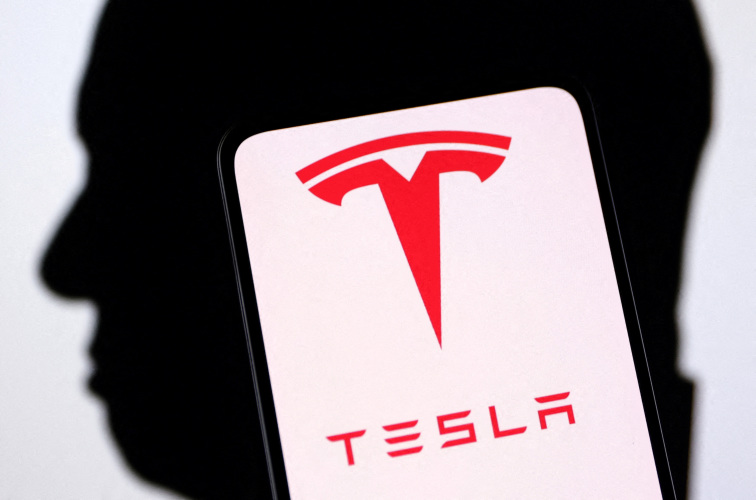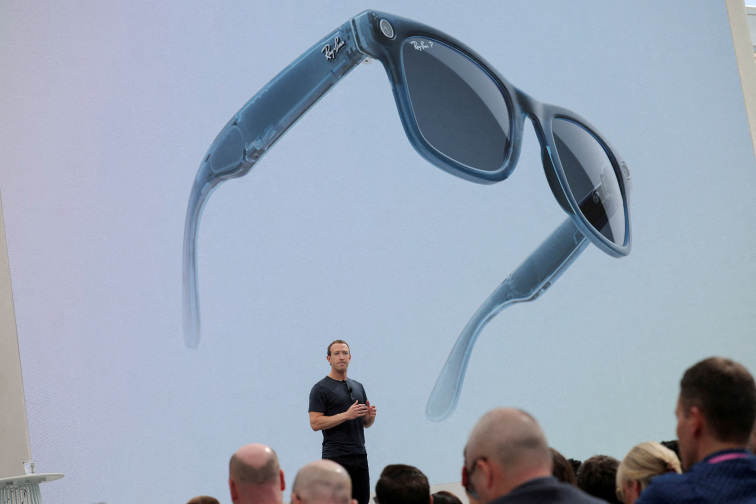General Motors chair and chief executive officer Mary Barra participates in an Economic Club of Washington discussion on "the transformation of the automotive industry to an all-electric future, the path to autonomous vehicles, and the recent negotiations with GM's workforce" in Washington, U.S., December 13, 2023. (REUTERS/Elizabeth Frantz)
DETROIT (Reuters) -General Motors CEO Mary Barra sought to soothe shareholders' worries that lagging demand for electric vehicles and perceived peak demand for gasoline-powered trucks will create a rough road ahead for the automaker.
Barra emphasized at an investor day on Tuesday in Spring Hill, Tennessee, that profit margins have not peaked on traditional internal combustion engine (ICE) powered vehicles, and its EV sales are ramping up, something sources previously told Reuters would be outlined. That includes 2025 profits in the same range as 2024, she said.
"I believe before the day is done, that you'll agree that GM has plenty of upside relative to the consensus view that the auto industry has reached peak profitability,” Barra told investors.
During the event, investors also expect more details on the automaker's restructuring in China, as well as updates around its Cruise autonomous vehicle operations, which has struggled since an accident last fall where one of its self-driving cars dragged a person.
The slower-than-anticipated EV transition has caused many automakers to adjust plans, including GM and rival Ford, and GM's messaging on Tuesday focused less on aggressive growth and more on stability.
AT the investor event, GM President Mark Reuss took a jab at Ford, which has established a specialized unit to bring down the cost of its EVs, called its "skunkworks" team.
“We don’t need to create a skunkworks to create affordable electric vehicles," Reuss said, highlighting how GM has brought down costs on its EVs through reducing the number of parts per vehicle, among other measures.
Last month, GM and Hyundai signed a non-binding memorandum of understanding to consider ways to "leverage their complementary scale and strengths to reduce costs and bring a wider range of vehicles and technologies to customers faster."
While EV demand has lagged since Barra set lofty production and profitability goals three years ago, she said GM still expects EVs by year-end to achieve positive variable profitability, which is revenue minus costs like labor and materials.
Meanwhile, Reuss said GM isn't missing out by foregoing hybrids in the near-term, unlike Ford and Toyota. Demand for gas-engine vehicles is strong, and emissions requirements don't ramp up until 2027, when GM will introduce plug-in hybrids, he said.
One focus at GM's event is its Ultium Cells battery technology, which investors saw during tours of the battery and EV assembly operations at the company's Tennessee plant.
The automaker will no longer use the Ultium name on its batteries, Kurt Kelty, head of battery cells, said. Moving forward, GM will be more flexible with battery chemistry and configuration, he said. Moving away from the Ultium name is significant for GM's branding of EVs, especially after the company highlighted it in Super Bowl advertisements.
(Reporting by Nora Eckert, editing by Ben Klayman and Nick Zieminski)











News magazine bootstrap themes!
I like this themes, fast loading and look profesional
Thank you Carlos!
You're welcome!
Please support me with give positive rating!
Yes Sure!